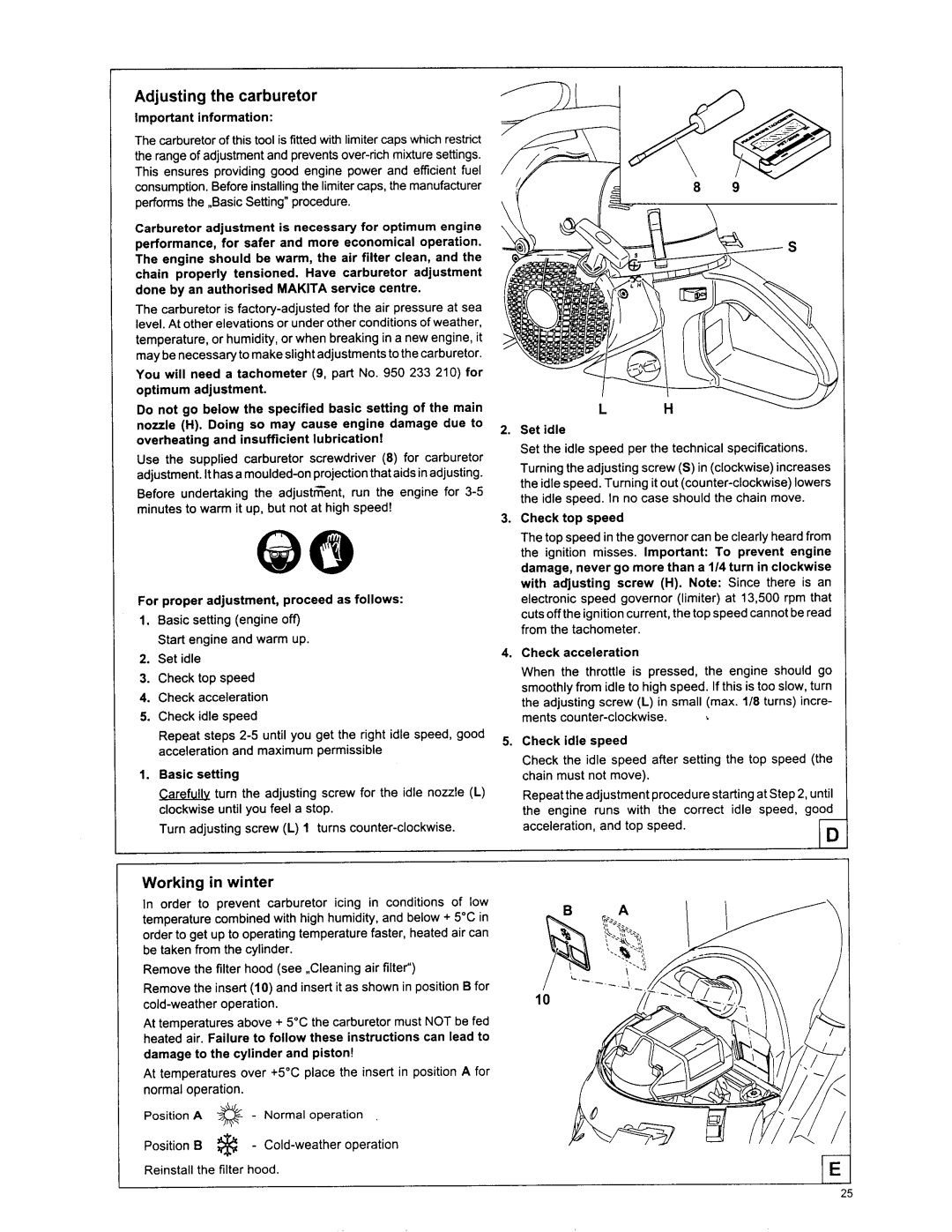DCS 7301, DCS 7900, DCS 6400, DCS 7300, DCS 7901 specifications
Makita, a leading manufacturer of power tools, has a robust lineup of professional-grade chainsaws, including the DCS 7900, DCS 7901, DCS 7300, DCS 7301, and DCS 6401 models. Each chainsaw is designed with advanced technology to meet the demanding needs of forestry and construction professionals.The Makita DCS 7900 is a powerful chainsaw equipped with a 79cc engine that delivers high cutting performance. It features a lightweight design combined with a powerful engine, allowing for maximum maneuverability. The saw's decompression valve ensures easy starting, while the adjustable chain oiler provides lubrication tailored to various cutting conditions. Its anti-vibration technology minimizes user fatigue during prolonged use, making it an excellent choice for professionals.
The DCS 7901 is an enhanced version of the DCS 7900, featuring an electronically controlled ignition system that optimizes fuel combustion for increased efficiency and lower emissions. This model maintains the same robust power but with improved fuel economy, making it an environmentally friendly option without sacrificing performance. The DCS 7901 also includes a heavy-duty air filter system, ensuring longer operation times by extending the life of the engine.
The DCS 7300 and DCS 7301 models are mid-range chainsaws that deliver exceptional power and versatility. The DCS 7300 features a 73cc engine, offering a perfect balance of weight and power, ideal for both felling and limbing. The DCS 7301 shares similar specifications with the DCS 7300 but includes additional features such as a tool-less chain adjustment system and a larger fuel tank for increased run time. Both models come with advanced anti-vibration technologies that ensure smooth operation.
Finally, the Makita DCS 6401 is a compact yet powerful chainsaw designed for users who require maneuverability without compromising on power. Equipped with a 64cc engine, this chainsaw is suitable for a variety of cutting tasks. It features a lightweight construction, making it ideal for prolonged use in tight spaces. The DCS 6401 also has a high-performance air filtration system, which increases engine life and efficiency.
In summary, all Makita chainsaws in this lineup are designed with user comfort and efficiency in mind. With powerful engines, advanced technology, and robust features, the DCS 7900, DCS 7901, DCS 7300, DCS 7301, and DCS 6401 ensure reliability and performance for professional users in demanding environments.

